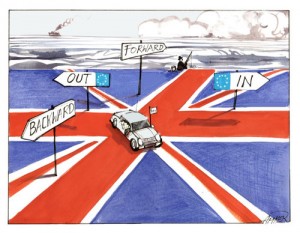By Prof Tonia Novitz, Professor of Labour Law (University of Bristol Law School).

Workers posted from one European Union (EU) Member State to another would seem to be in need of urgent social protection. Recent evidence produced by the European Commission indicates that, between 2010 and 2014, the number of workers posted from one EU State to another increased by almost 49% (in total approximately 1.9 million workers). More importantly, posted workers tend to earn substantially less than local workers, with reports of income of less than 50% than that usually paid in a given place for the same job. Further, there are indications that, in certain sectors, such as the construction industry, posted workers may be at greater risk of harm through violation of health and safety standards. The reasons may seem obvious, since the language, laws and legal system of a host State are likely to be foreign to posted workers who can also be left without effective local trade union representation.
In the Laval case (C-341/05), the capacity for minimum wages (and other work-related benefits) to be set for posted workers by collective bargaining by trade unions in the host State was cast into doubt. Collective bargaining (and the collective action that generated such bargaining) was considered to be too unpredictable in terms of effect and outcome, creating an unjustifiable barrier for the free movement of service providers. It was only in the case of ‘social dumping’, a nebulous term of uncertain reach, that collective action aimed at conclusion of a collective agreement could be permitted in respect of a particular group of posted workers. Instead, the Court relied on Article 3(1) of the Posting of Workers Directive 96/71/EC (PWD), which envisages only the setting of minimum standards in relation to certain matters. This may be done by ‘law, regulation or administrative provision’ but also by ‘collective agreements or arbitration awards which have been declared universally applicable…’ in accordance with Article 3(8) insofar as they concern’ activities listed in the Annex largely pertaining to the construction industry. EU States may also take the option to give such legal effect to universally applicable collective agreements in other sectors in accordance with Article 3(10). Through this prescriptive treatment of the appropriate limits of collective bargaining, what had been seen by some as a ‘floor of rights’ in PWD came to be a ‘ceiling’. If the national measures taken in respect of protection of the rights of posted workers did not fit within the ambit of the precise terms set out in the PWD, then they were impermissible, despite the apparent scope in Article 3(7) for a more generous interpretation of the Directive ‘more favourable to workers’. (more…)



